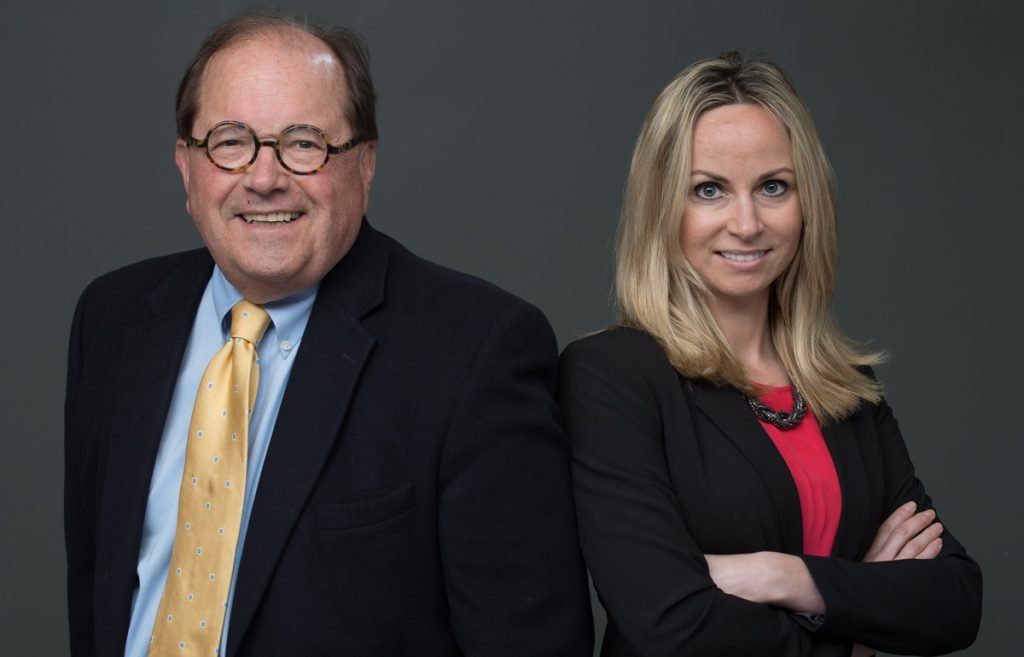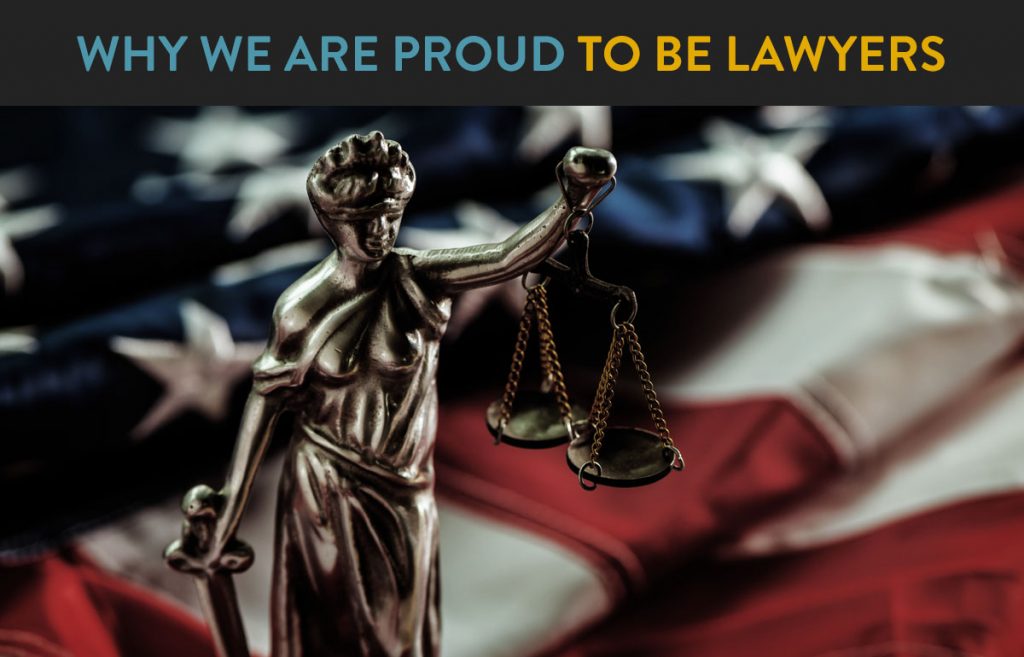This Thanksgiving when asked “what are you thankful for?” tell your children, grandchildren, family and friends that you are thankful, and proud, to be a lawyer and to belong to a great profession.

The legal profession’s contributions to government, business, education, and human rights have benefited every American.
The men and women of the legal profession are the problem solvers. It is our task to reconcile adverse interests and to fashion common solutions, attempting to be acceptable to all.
We counsel and advise business, industry, and labor how to untangle laws and regulations so that commerce and trade can flourish. Behind the scenes we have made this country the great financial and industrial success that it is today.
When something goes wrong, we are called by the damaged and the distraught to deliver remedies to make them whole. Our creative and remedial efforts are intended to benefit our clients, but at the same time these same skills render a valuable public service that puts disputes to rest, brings peace between parties, and order to personal affairs.
Our profession has the responsibility of assuring the fair and impartial application of the criminal law, so the innocent are protected and the guilty are convicted.
Both public defender and the private bar defend the unpopular to ensure that the guarantees of constitutional government will be a reality for the least privileged of our society, ensuring that these rights will be preserved for everyone, all the time.
In addition to the important indirect benefits the public receives from our professional efforts, there are few professions with an equal record of direct public service.
When you survey the history of public service by professional groups, you will find few that meet our level of commitment to the public. Lawyers coined the words “pro bono publico” and made them the watchwords of every profession in the United States today.
I challenge every profession, business, occupation, and industry to emulate the distinguished record of public service of the men and women of the legal profession.
Lawyers routinely provide free legal services to the public, often at a moment’s notice, by answering an important question, giving advice, or providing referrals.
The legal profession volunteers its time and talents to educating the public, and our colleagues, by lecturing and by writing in journals and newspapers.
Hundreds quietly devote untold hours to bar government activities, regulating the profession so that only those who merit confidence may practice. This enormous gift of time, energy, and talent at the state and local level not only serves to better our profession, but also is an outstanding public service for which these volunteer lawyers receive little public recognition.
Our bar associations have created approved panels of experienced, qualified attorneys and have maintained a public referral program so that the average citizen need not leave it to chance when retaining counsel. Low-cost referrals are available so the public easily can select lawyers with confidence.
The members of the profession serve on the boards of charities, community service, cultural and other organizations directly serving the public and providing legal advice and services to these organizations without charge.
Our legal foundations provide legal services to the less fortunate by representing whole classes of poor and disenfranchised.
Lawyers have been the leading advocate of programs to provide legal services to all. Attorneys regularly volunteer their time as directors of legal aid programs and supervise the free delivery of legal services throughout the state. We know that for the poor to have rights that cannot be enforced is to have no rights at all and that is why we support full funding for legal aid programs.
We represent the poor and indigent. Our compensation is the knowledge that we have rendered a service for someone who deserved it. We accept appointments from federal and state courts to defend indigents at modest sums which do not even begin to pay the modern-day salaries and expenses that a lawyer must bear.
We volunteer as judges pro tem in superior courts during the day and in the evenings in small claims cases for our neighborhood small claims program to help resolve disputes for those who find it impossible to have the court hear the cases during the day. Thousands of our colleagues have helped to reduce court congestion by donating their skills and time as settlement conferences judges and arbitrators. But for our willingness to serve many of the public’s cases would still be unresolved.
The record of the public service of the legal profession is exemplary.
Throughout the course of history the men and women of the legal profession have left their special mark: Jefferson, Adams, Hamilton, Monroe, Randolph, Marshall, Lincoln, Darrow, Roosevelt, Warren, Kennedy, Justices Sandra Day O’Connor, Sonia Sotomayor, Elena Kagan, Amy Coney Barret, and Tani G. Cantil-Sakauye to name only a very few. These women have broken the barriers that for years have denied women full participation in government. As women and as lawyers they are leaving their special mark on American history.
In the early 1800s, Alexis DeTocqueville observed that lawyers play a distinctive and prominent role in American life.
It is still true today. The American legal system reflects the most vital aspects of our society: its institutions; its checks and balances; its economic organizations; its size; its racial, ethnic, and religious pluralism; its interest-group politics; its respect for human rights; and, most of all, its exclusive reliance upon the law to solve every problem.
We live in a world that is extraordinarily dynamic and rapidly changing.
Every new day technology has a startling impact on our lives and it is not simply growing. It has exploded beyond our wildest dreams.
More than ever before the legal profession is relied upon to provide the experience and vision to interpret this new dynamic and to help lawmakers, and the leaders of our industries, businesses, financial, educational and governmental institutions adapt to the best of the new, while preserving our constitutional, moral, and human values.
More than ever before, the men and women of the legal profession in both their public and private service are called on to infuse and vitalize this new era with an appreciation and respect for the rights we cherish.
American lawyers succeed in this mission because they have a special capacity for analysis, an honest regard for facts, an open-minded willingness to look at a problem from every side, an ability to detect trouble in advance, a talent for designing imaginative solutions, a human perspective that enables them to perceive problems in their full social and historical context, and a respect for human values.
For our private and public contributions, for helping to make this country the great protector of human rights that it is today, for our contributions that have made the U.S. the financial, industrial, and constitutional success that it is today, honor is due to the members of this great profession and its outstanding record of private and public accomplishment.

No other profession, occupation, business, or industry in the United States that can equal the outstanding record of private and public accomplishment of the American legal profession.
I am proud to be a lawyer. You too.



